
Flying male frigate bird during the mating season, Christmas Island Kiribati Wildlife
List of Common Birds Found in Kiribati Native Birds Bar-tailed Godwit Black-bellied Plover Black-crowned Night Heron Black-faced Cuckooshrike Black-footed Albatross Black-naped Tern Black Noddy Black-winged Petrel Black-winged Stilt Blue-faced Parrotfinch Bridled Tern Bristle-thighed Curlew Brown Booby Brown Goshawk Brown-headed Gull Brown Noddy
Kiribati
Ninety species of birds have been recorded in Kiribati, of which two are endemic and three have been introduced by humans. The Henderson petrel and Kiritimati reed-warbler (locally called bokikokiko) are both listed as endangered on the IUCN Red List. [1] Reptiles Two species of marine turtle have been positively identified in Kiribati waters: [2]

Masked Booby bird in the nest, Christmas Island, Kiribati Stock Photo Alamy
Here under are some of the rare native plant and animal species in Kiribati islands: There are two endemic birds which are: Bokikokiko . This bird is also known as Kiritimati Reed Warbler or Christmas Island Warbler. This bird has unique feathers shape on its whole body, especially the head. The feathers of these birds have.

Masked Booby bird in the nest, Christmas Island, Kiribati Stock Photo Alamy
Birds of Kiribati Species Start typing either english or scientific name EX EW CR (PE) CR EN VU NT LC DD NE Number of displayed species: 90 List Photos Ducks and relatives / Anseriformes 1 Ducks, Geese, Swans / Anatidae 8 Canada Goose / Branta canadensis LC Northern Shoveler / Spatula clypeata LC Gadwall / Mareca strepera LC
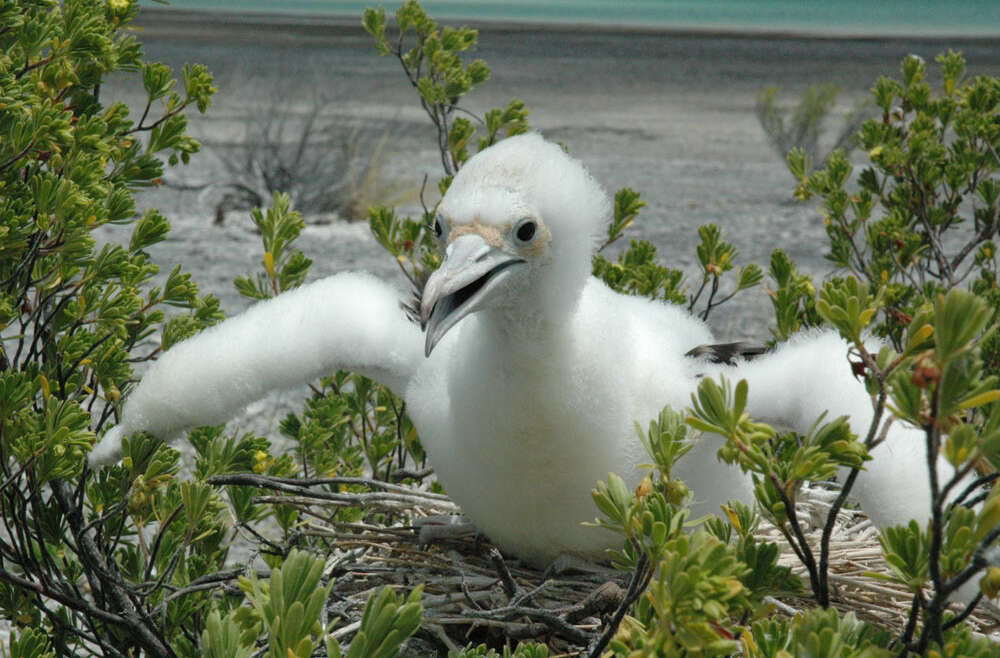
Experiences in Kiribati
The Kiribati islands are host to a number of bird species many of which are found on only a few islands. Many sensitive species are restricted to predator-free islands or motu. Several introduced species are found mostly around towns and harbours. Environment Report VF 8246 [EL] SEPTEMBER 8, 2023 BY ADMIN Download PDF (2MB) PEIN Notes
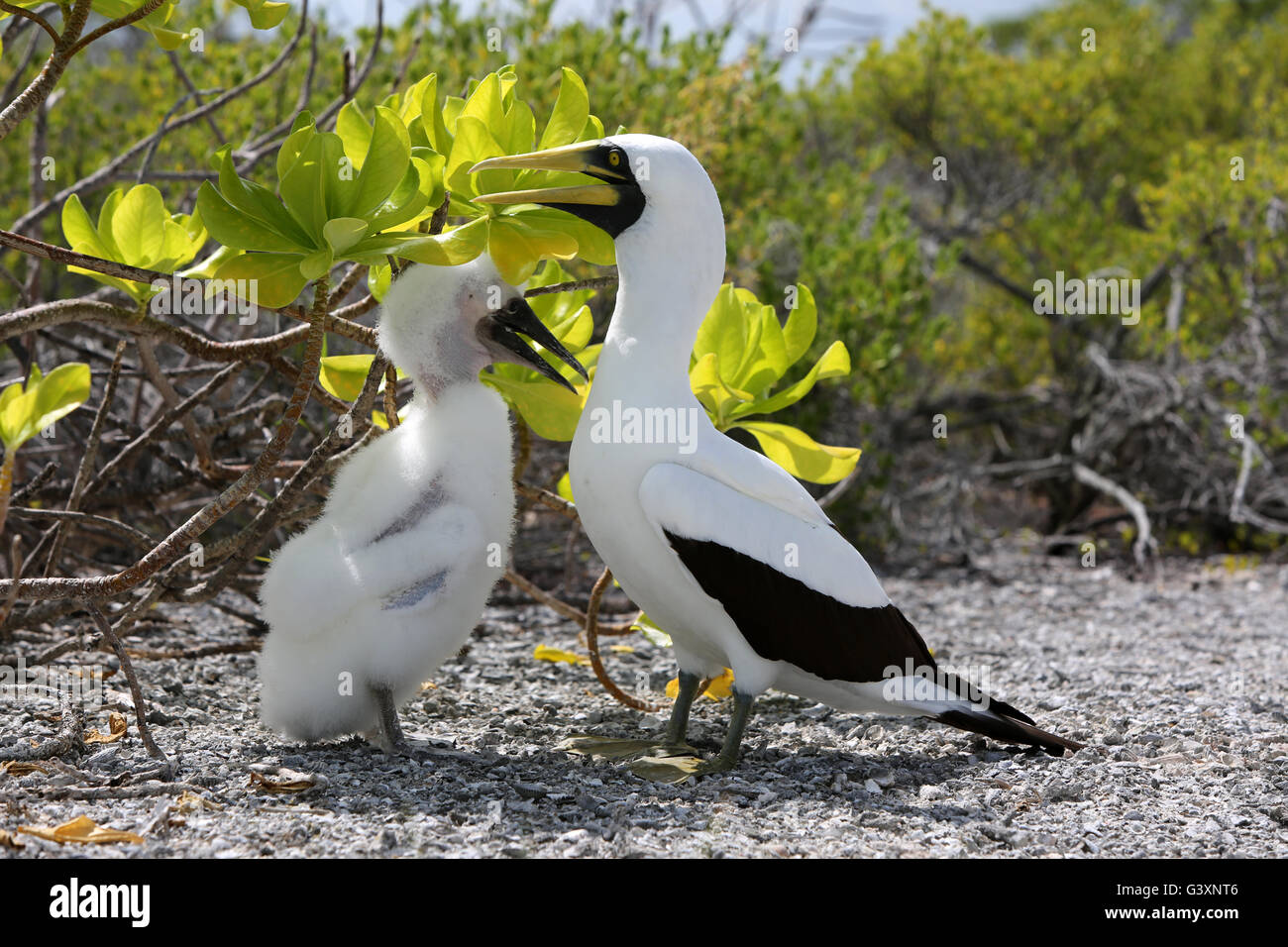
Masked Booby bird with a chick, Christmas Island, Kiribati Stock Photo Alamy
List of birds of Kiribati This is a list of the bird species recorded in Kiribati an island nation in the central Pacific Ocean. The avifauna of Kiribati include a total of 90 species, of which two are endemic, and 3 have been introduced by humans.
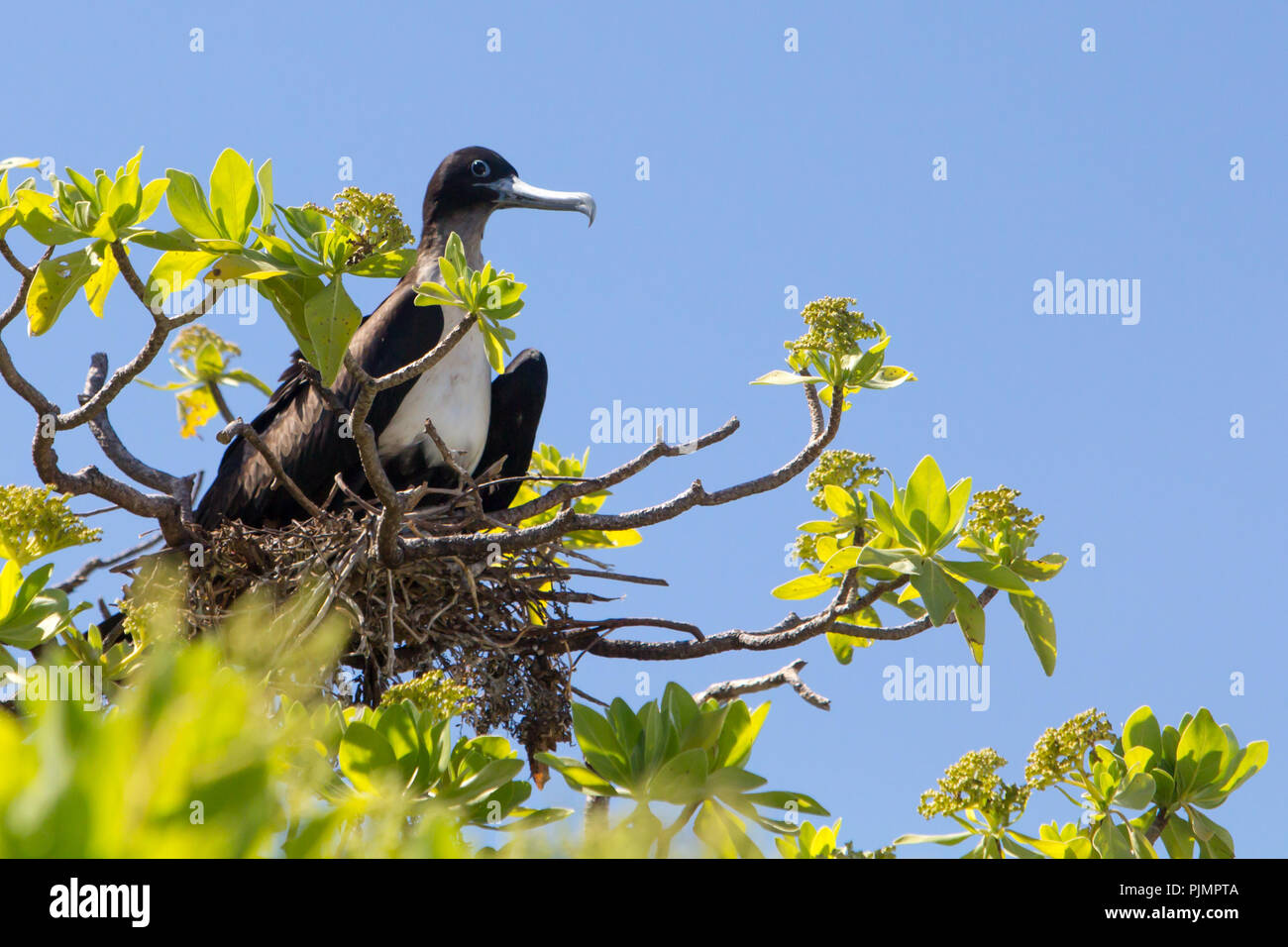
Frigatebirds nesting on one of the small motus at Millennium atoll in the southern line islands
i r d s OF KIRIBATI Phoenix Petrel Pterodroma alba Te Ruru EN PI LI Nests on ground under vegetation on predator-free islands. L = 35 cm W = 83 cm White on belly, underwings pale leading edge, bill short and thick. Bulwer's Petrel Bulweria bulwerii No I-Kiribati name LC PI Nests on ground in rocky

Redfooted Booby bird, Christmas (Kiritimati) Island, Kiribati Stock Photo Alamy
List of birds of Kiribati - Wikiwand This is a list of the bird species recorded in Kiribati an island nation in the central Pacific Ocean. The avifauna of Kiribati include a total of 90 species, of which two are endemic, and 3 have been introduced by humans.

Frigatebird (Fregata) in flight (telephoto). Tabuaeran Atoll/Island (Fanning Island/Atoll), Line
Birds found on Kiritimati Island are: phoenix shearwaters, wedge-tailed shearwaters, christmas shearwaters, audubon's shearwaters, polynesian storm petrels, red-tailed tropicbirds, masked boobies, brown boobies, great frigate birds, red-footed boobies, lesser frigate birds, great crested terns, grey backed terns, sooty terns, brown noddies black.
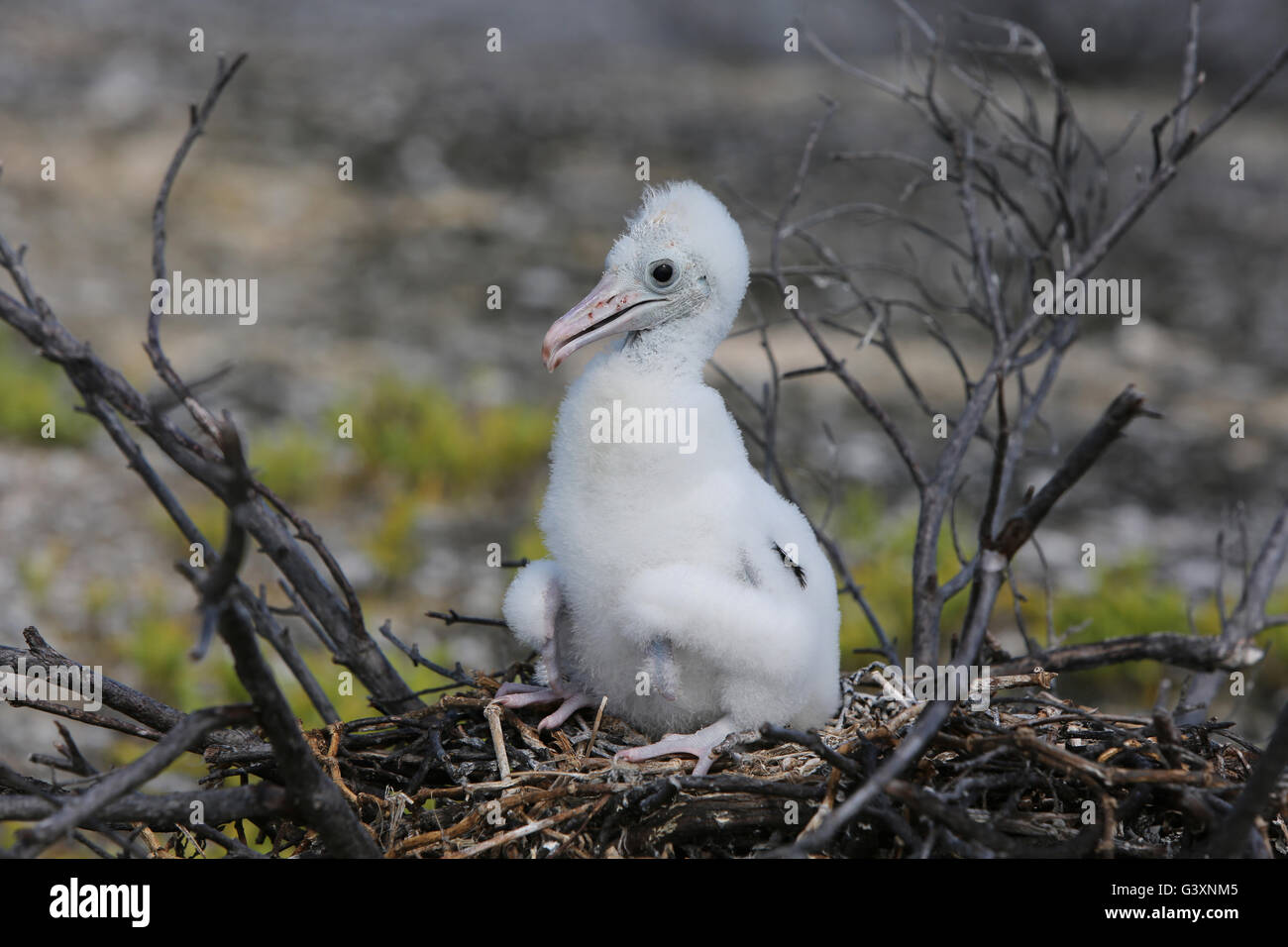
Frigatebird chick in the nest, Christmas Island, Kiribati Stock Photo Alamy
The 18 species of seabirds found on Kiritimati include fairy terns, sooty terns, great crested terns, masked boobies, red-footed boobies, brown noddies, blue-grey noddies, red-tailed tropic birds, great frigate birds, Polynesian storm petrels and wedge tailed shearwaters.

Sea birds flying on Christmas Island, Kiribati Stock Photo Dissolve
Birds found on Kiritimati Island are: phoenix shear-waters, wedge-tailed shear-waters, Christmas shearwaters, Audubon's shearwaters, Polynesian storm petrels, red-tailed tropic-birds, masked boobies, brown boobies, great frigate birds, red-footed boobies, lesser frigate birds, great crested terns, grey backed terns, sooty terns, brown noddies bl.
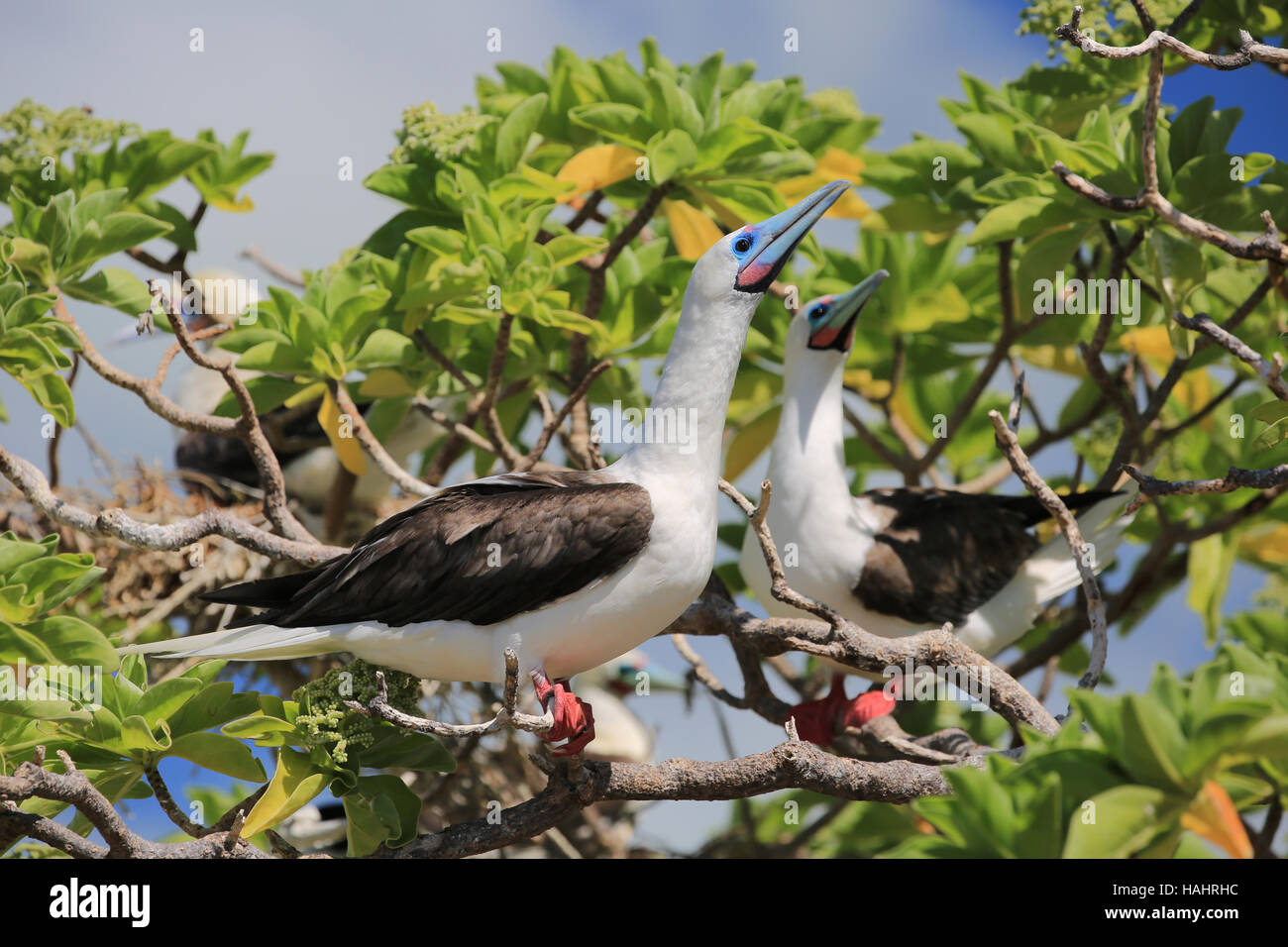
Redfooted Booby birds Christmas (Kiritimati) Island, Kiribati Stock Photo, Royalty Free Image
From colorful parrots to rare seabirds, Kiribati provides a unique opportunity to observe some of the most captivating birds in the world. The diverse avifauna of Kiribati has been a source of fascination to birders and wildlife enthusiasts for many years, and there is still much to be uncovered in this part of the world.

A juvenile frigatebird flying above Millennium atoll in the southern Line Islands of Kiribati
According to the 'Guidelines for Monitoring Birds and Invasive Species at Kiritimati, Kiribati,' the country is home to a diverse flora and fauna, including 21 breeding sea bird species, many of which are considered globally important and two of which are under threat of extinction, in part due to invasive species including two species of rat and feral cats. Other threats to sea birds.

National animal, Animals, Frigatebird
Explore recent checklists of birds in this area. Observer Date Location Species; Chris Thompson: 20 Oct 2021: Auto selected -9.99187, -150.22785, Kiribati
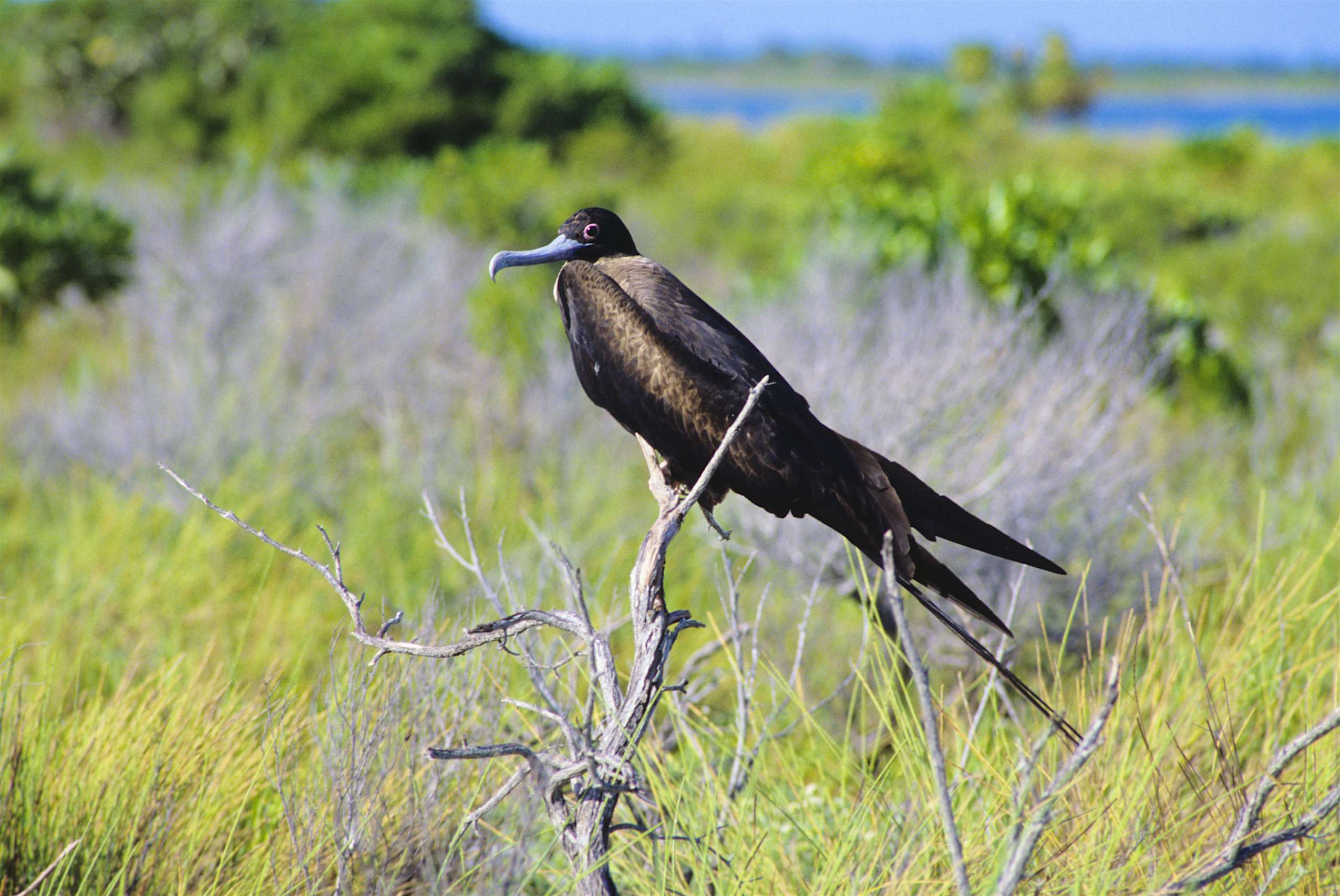
Natural spoils why Kiribati is a nature lover's paradise Lonely
This is a list of the bird species recorded in Kiribati an island nation in the central Pacific Ocean. The avifauna of Kiribati include a total of 90 species, of which two are endemic, and 3 have been introduced by humans.. This list's taxonomic treatment (designation and sequence of orders, families and species) and nomenclature (common and scientific names) follow the conventions of The.
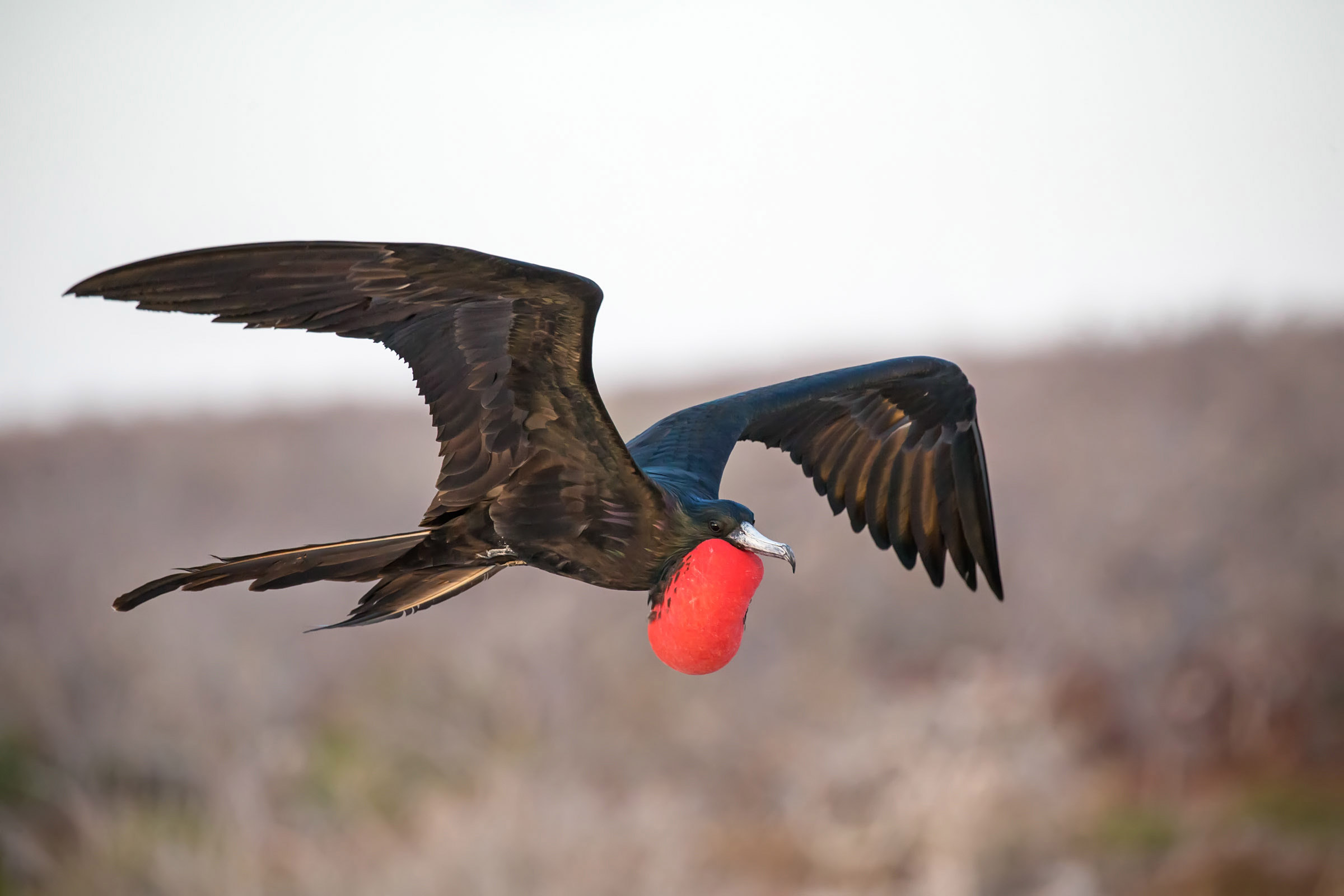
Magnificent Frigatebird Audubon Field Guide
These count in official eBird totals and, where applicable, have been accepted by regional bird records committee(s). Provisional : Either: 1) member of exotic population that is breeding in the wild, self-propagating, and has persisted for multiple years, but not yet Naturalized; 2) rarity of uncertain provenance, with natural vagrancy or captive provenance both considered plausible.